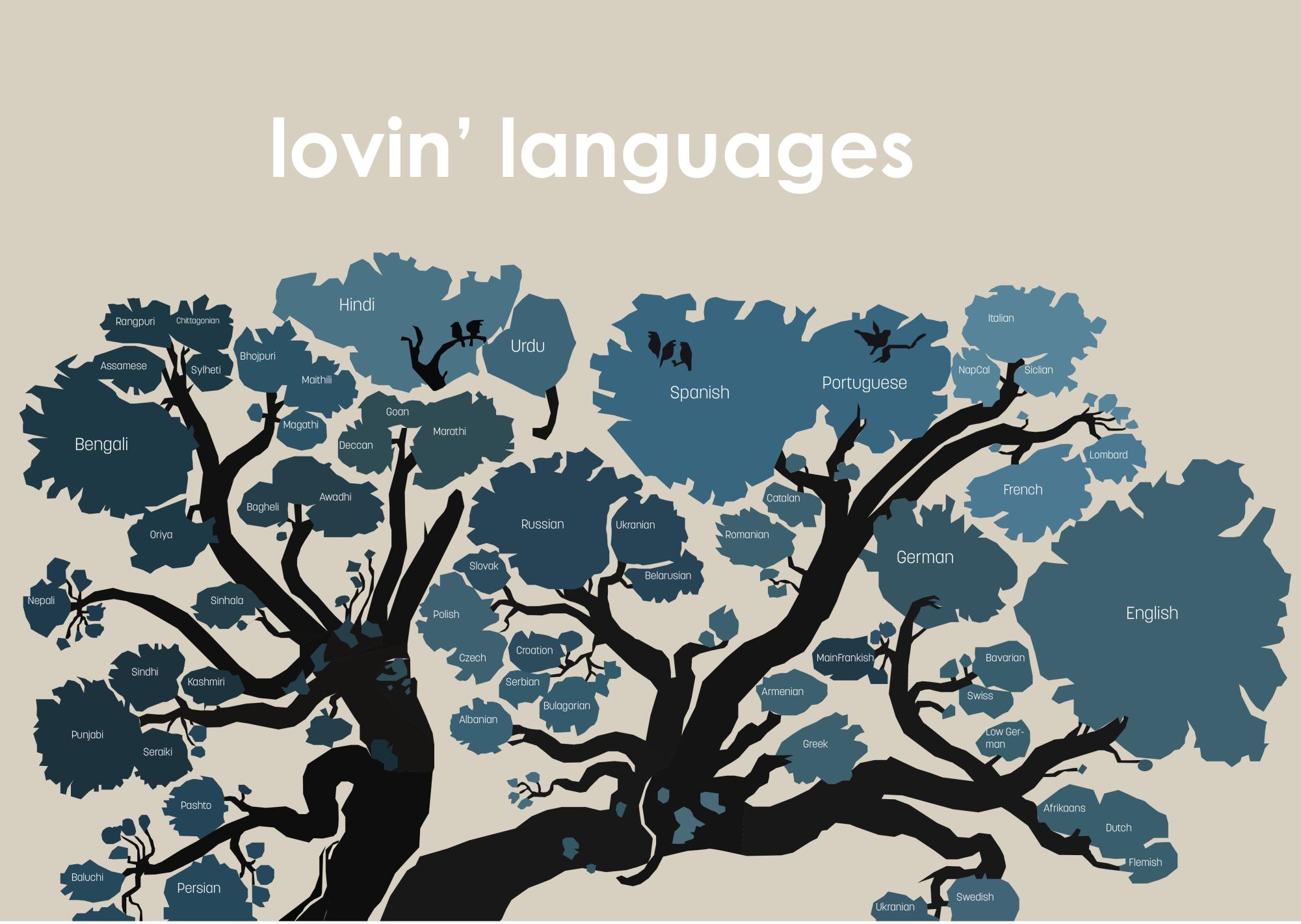Throughout his childhood, sophomore Rafan Tajwer said his earliest memories were in his mother tongue of Urdu.
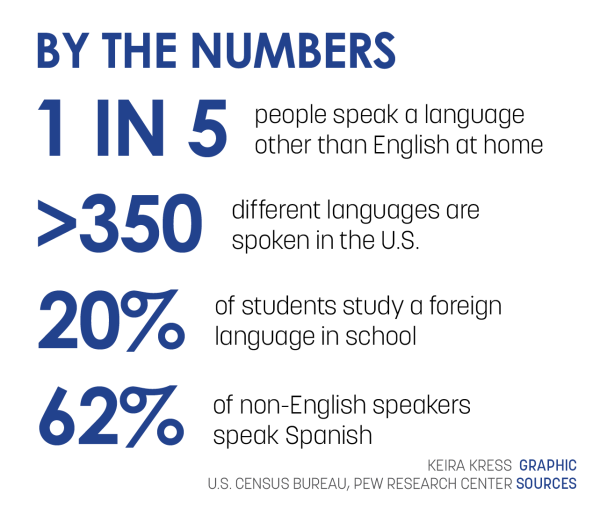
“So by technical standards, my first language is English, though my earliest memories are actually mostly in Urdu. However, when I grew older, I spoke English better than Urdu. Ultimately, by then I had forgotten a lot of my Urdu,” Tajwer said.
Like Tajwer, junior Amna Ahmad said she also only spoke her mother tongue Urdu, and did not know much English growing up.
“My parents both immigrated from Pakistan, and they brought their language of Urdu back with them,” Ahmad said. “When I was a child, my parents only spoke Urdu to me, so I did not learn much English, and only learned (English) through TV shows and school.”
Junior Ava Luo said exposure to Mandarin helped her on many levels.
“Technically, Mandarin was my first language. For the first three years of my life, I actually grew up with my aunt and uncle in China. It has been very beneficial since I am able to connect with my family, my culture and just generally understand my own background better,” she said.
Language Scarcity
But although Tajwer, Ahmad, and Luo have all held onto their parents’ native languages, they’re becoming more scarce.
According to a thesis, by Fawzia Riji, titled “Native Language Attrition Among Immigrants,” language attrition, the process of native language fluency fading, is common in immigrant families. Rizi states the immigrants grew up in an environment that fostered and was based in their mother language. However, the children of immigrants are often reliant on their parents to teach them their mother tongue.
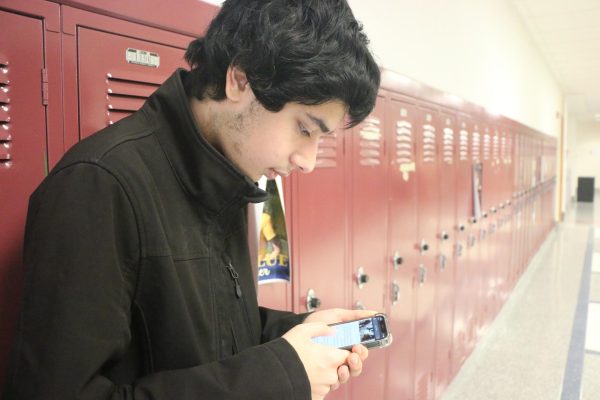
(Abigail Lee)
Tajwer said he believes having his parents speak their language to him really helped him learn it in the long term.
“Natural exposure to language is very helpful in learning that language, and sort of because of that, I started accumulating a larger vocabulary with them and certain household words that I probably wouldn’t learn if I was just self-studying on my own. I was able to sort of just pick up naturally,” Tajwer said
To Rizi’s point, this is not the case for all students. Junior Adam Madni said he did not learn his mother tongue at a young age.
“My parents both speak Hindi, and as a kid they tried to teach it to me,” he said. “I am not entirely sure why, but I never really picked up on the language that much. My parents were more focused on me learning English, rather than focusing on Hindi, so I think that it might have been a significant part of that.”
Contrary to Madni, Tajwer said his parents were more focused on finding a middle ground between assimilating to their new country and retaining the culture of their homeland.
“I think that was sort of a maneuver by them to sort of assimilate themselves into the culture and make sure that I could be there. It’s not about the accent. It’s sort of finding that middle ground between their culture and this culture here,” he said.
Cultural Connection
Language and culture are often closely related, and Ahmad said her fluency in Urdu allowed her to form a closer connection with her culture.
“I think that it helped me understand the nuances in my culture. For example, poetry is a big part of Pakistani culture, and being able to read and understand it has really helped me personally,” she said. “However, I feel like it is not necessarily integral to being connected to your culture, but it can definitely help you in the long run. For me, it helped me also connect with my relatives who don’t speak English as much, so being able to communicate and form a relationship with them has been really important to me.”
Luo has a similar perspective to Ahmad and Tajwer. Luo said through learning her mother tongue, Mandarin, she was able to connect further with her own culture.
“I think knowing Mandarin has really helped me connect with my culture because I can consume a lot of different media, like dramas or shows. Because I know Mandarin, I am able to consume these easier, and they are more enjoyable for me than if I didn’t know Mandarin,” Luo said. “One thing that I think a lot of people neglect about Chinese culture is that it has its own pop culture. Knowing Mandarin has helped me understand the depths and complexities of this pop culture, compared to someone who only speaks English.”
Giancarlo Di Mizio, education director at the Indy Language Center (ILC), said people who come in to learn their mother tongue come for a variety of reasons.
“I’ve worked in the service of connecting, or reconnecting people with a part of their roots, be it through speaking the language their parents or grandparents did, or even just being able to consume the same media, art, and food with more satisfaction and appreciation,” he said via email.
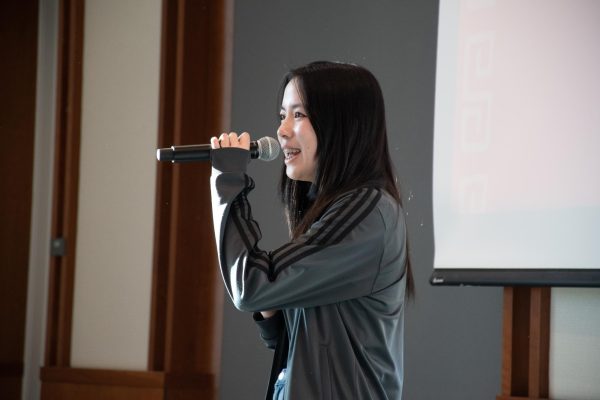
Madni said he felt a greater disconnect from his culture because of not being able to speak Hindi.
“I feel like (knowing your mother tongue) preserves your own identity and culture and helps you connect with the rest of your own family in a way that would not be possible without learning this language,” Madni said.
However, junior Eesha Singh said there are other ways to connect with one’s culture.
“I connect with my culture through a few ways. Firstly, my family is very religious. So going to the temple is definitely a way that I connect with my culture. Like at home, I speak my language (Hindi) usually. So that’s also a way I try to connect with my culture,” Singh said.
For Singh, she said her mother tongue was naturally present in her household.
“As a little kid, I’d be able to pick up from what they said, kind of like how a little kid in America will learn English. So it was just something that I grew up with. I never went to school and learned it properly but it was just something that was just culturally in our house.” Singh said.
Ahmad said being able to speak Urdu has helped her connect with family members as well.
“It has helped me connect with my family members who only speak Urdu or Punjabi, and having that relationship with them is very important to me now,” Ahmad said.
On the flip side, losing one’s mother language can present challenges when it comes to communication with family members.
“A majority of my family lives in India and a lot of my grandparents and relatives can speak English,” Singh said. “However, my paternal grandmother is only fluent in Hindi and Telugu and I don’t know Telugu. So I have to only converse with her in Hindi, which is kind of difficult because I mean my fluency is there but it’s not at the maximum point where I can have a meaningful conversation with her, which is sometimes difficult.”
Tajwer expressed a similar sentiment as Singh.
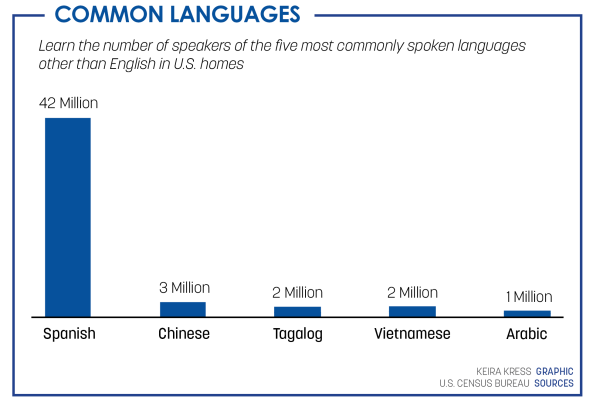
“A lot of the times when I went to Pakistan, [my family] did try to speak English, but their English was spotty. So it was sort of a collaboration between me and them in a way to just find this little middle ground where we could understand since either my Urdu was bad or their English was bad,” Tajwer said.
However, Di Mizio said a mother tongue doesn’t need to be tied to an ethnic background.
“This might be surprising, but in fact, a mother language can be any language, regardless of your ethnic background,” he said. “By definition, it just has to be your first. Sometimes parents will bring their children to learn a language, and at times it is indeed the mother tongue of the parent, but for a variety of reasons, teaching it to their children is just too daunting of a task.”
In the end, Madni said he hopes to learn his parent language in the future.
“Personally, I would like to get better at speaking, but I have no real motivation to do so right now. I think that it should be important to learn your mother tongue as it helps you connect with your culture more, compared to not knowing and you can also learn at any age,” Madni said. “So even if your parents didn’t teach it to you, it is never too late to start.”


